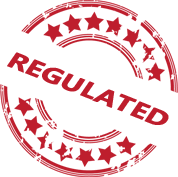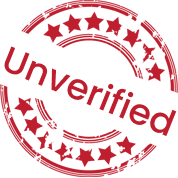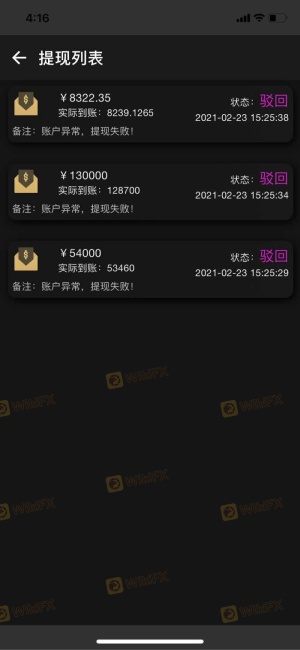Regarding the legitimacy of Trade Capital Markets forex brokers, it provides CYSEC, FSCA and WikiBit, (also has a graphic survey regarding security).
Is Trade Capital Markets safe?

Risk Control

Software Index

Is Trade Capital Markets markets regulated?
The regulatory license is the strongest proof.
CYSEC Market Making License (MM) 17
Cyprus Securities and Exchange Commission
Cyprus Securities and Exchange Commission
Current Status:
RegulatedLicense Type:
Market Making License (MM)
Licensed Entity:
Trade Capital Markets (TCM) Ltd
Effective Date:
2014-02-17Email Address of Licensed Institution:
info@tradecapitalmarkets.comSharing Status:
Website of Licensed Institution:
www.tradecapitalmarkets.com, www.trade.com, www.heromarkets.comExpiration Time:
--Address of Licensed Institution:
Λεωφόρος Στροβόλου 148, 1ος Όροφος, Στρόβολος 2048, Λευκωσία ΚύπροςPhone Number of Licensed Institution:
+357 22 030 446Licensed Institution Certified Documents:


FSCA Derivatives Trading License (EP)
Financial Sector Conduct Authority
Financial Sector Conduct Authority
Current Status:
UnverifiedLicense Type:
Derivatives Trading License (EP)
Licensed Entity:
TRADE CAPITAL MARKETS (TCM) LTD
Effective Date:
2019-02-05Email Address of Licensed Institution:
--Sharing Status:
No SharingWebsite of Licensed Institution:
--Expiration Time:
--Address of Licensed Institution:
329 MAIN STREETGX11 1AAGIBRAL TAR0Phone Number of Licensed Institution:
+357 22 030 446Licensed Institution Certified Documents:


Is TCM Safe or Scam?
Introduction
Trade Capital Markets (TCM) is a brokerage firm that positions itself within the forex market, offering a variety of trading instruments including forex, indices, metals, commodities, and cryptocurrencies. As the online trading landscape continues to expand, it is crucial for traders to exercise caution when selecting a broker. The potential for scams is significant, and traders can easily fall victim to fraudulent schemes if they do not conduct thorough due diligence. In this article, we will investigate whether TCM is a safe option for traders or if it poses a risk of being a scam. Our assessment will be based on a comprehensive review of TCM's regulatory status, company background, trading conditions, client fund safety, customer experiences, and risk factors.
Regulation and Legitimacy
The regulatory environment is one of the most critical aspects to consider when evaluating a forex broker. TCM claims to be regulated by the Cyprus Securities and Exchange Commission (CySEC), which is a reputable authority in the European financial landscape. However, there are concerns regarding its status with the Financial Sector Conduct Authority (FSCA) in South Africa, where TCM is suspected of being a clone operation.
Here is a summary of TCM's regulatory information:
| Regulatory Authority | License Number | Regulatory Region | Verification Status |
|---|---|---|---|
| CySEC | 227/14 | Cyprus | Verified |
| FSCA | 47857 | South Africa | Suspicious Clone |
The quality of regulation plays a vital role in a broker's credibility. CySEC is known for its stringent regulatory standards, which include requirements for capital adequacy, investor protection, and operational transparency. However, the suspicion surrounding TCM's FSCA license raises red flags. A clone firm often replicates the details of a legitimate broker to mislead potential clients, and this is a significant concern for those considering whether TCM is safe.
Company Background Investigation
TCM was founded in 2013 and is headquartered in Nicosia, Cyprus. The company has developed a reputation for providing a range of trading instruments and services. However, the ownership structure and management team behind TCM remain somewhat opaque. The lack of detailed information about the management team raises questions about the broker's transparency and accountability.
In terms of information disclosure, TCM's website offers limited details about its operational practices and company history. This lack of transparency can be a warning sign for potential investors. A reputable broker typically provides comprehensive information about its management, operational history, and business practices. The absence of such details may suggest that TCM is not as forthcoming as it should be, leading to further inquiries about whether TCM is safe for traders.
Trading Conditions Analysis
When evaluating a broker, understanding the trading conditions is essential. TCM offers a variety of account types, each with its own fee structure. The broker claims to provide competitive spreads, leverage options, and a range of trading instruments. However, some users have reported issues with hidden fees and withdrawal difficulties, which could indicate a lack of transparency in their fee structure.
Here is a comparison of TCM's core trading costs:
| Fee Type | TCM | Industry Average |
|---|---|---|
| Major Currency Pair Spread | Starting from 0.2 pips | 1.0 pips |
| Commission Model | $5 per trade | $3-5 per trade |
| Overnight Interest Range | Varies | Varies |
While TCM's spreads appear attractive, the commission structure may not be as competitive as it suggests. Additionally, the potential for hidden fees raises concerns about the overall cost of trading with TCM. Traders should be cautious and ensure they fully understand the fee structure before committing any funds.
Client Fund Safety
Client fund safety is a paramount concern for any trader. TCM claims to implement various measures to protect client funds, including segregating client accounts from operational funds and adhering to data protection policies. However, the effectiveness of these measures is questionable given the reports of withdrawal issues and client complaints.
The broker's commitment to fund safety is further challenged by the lack of investor protection schemes in certain jurisdictions. For instance, while CySEC provides a certain level of investor protection, the FSCA's suspicious status raises doubts about the safety of funds for clients in South Africa. Historical issues related to fund security can also impact a broker's reputation, and TCM has faced such challenges in the past, casting further doubt on whether TCM is safe for traders.
Customer Experience and Complaints
Customer feedback is a valuable indicator of a broker's reliability. Reviews of TCM reveal a mixed bag of experiences, with some traders praising its trading platform and range of instruments, while others report significant issues, particularly regarding withdrawals. Common complaint patterns include difficulties in accessing funds, lack of responsiveness from customer support, and unexpected fees.
Here are some key complaint types and their severity assessment:
| Complaint Type | Severity Level | Company Response |
|---|---|---|
| Withdrawal Issues | High | Slow response |
| Poor Customer Support | Medium | Inconsistent |
| Hidden Fees | Medium | Limited explanation |
Two notable cases include traders who reported being unable to withdraw their funds, leading to frustration and distrust. In both instances, the company's response was deemed inadequate, further fueling concerns about whether TCM is safe for potential investors.
Platform and Execution
The trading platform provided by TCM is primarily the MT5 platform, which is known for its advanced features and user-friendly interface. However, the performance and reliability of the platform are crucial for traders. Reports of slippage and rejected orders have surfaced, raising concerns about the execution quality.
While TCM markets itself as a broker that offers fast execution speeds, the actual user experience may vary. Traders should be wary of any indications of platform manipulation or inconsistencies between advertised performance and actual execution.
Risk Assessment
Engaging with TCM presents several risks that traders must consider. The combination of regulatory concerns, customer complaints, and potential hidden fees creates a complex risk landscape. Here is a concise risk scorecard summarizing key risk areas:
| Risk Category | Risk Level (Low/Medium/High) | Brief Description |
|---|---|---|
| Regulatory Compliance | High | Suspected clone status with FSCA |
| Fund Safety | Medium | Reports of withdrawal issues |
| Customer Support | Medium | Inconsistent responses to complaints |
To mitigate these risks, traders should conduct thorough research, utilize demo accounts where possible, and consider diversifying their trading portfolio to spread risk.
Conclusion and Recommendations
Based on the evidence presented, TCM exhibits several characteristics that raise concerns about its safety and reliability. The combination of regulatory issues, customer complaints, and a lack of transparency suggests that traders should approach this broker with caution. While TCM is regulated by CySEC, its suspected clone status under the FSCA and reports of withdrawal difficulties indicate potential risks.
For traders seeking a reliable forex broker, it may be prudent to consider alternatives with a proven track record of transparency, robust customer support, and strong regulatory oversight. Brokers such as IG, OANDA, and Saxo Bank are examples of reputable firms that have established themselves in the market.
In summary, while TCM offers a range of trading options, the potential risks associated with this broker may outweigh the benefits, leading to the conclusion that traders should carefully evaluate whether TCM is safe before making any commitments.
Is Trade Capital Markets a scam, or is it legit?
The latest exposure and evaluation content of Trade Capital Markets brokers.



Trade Capital Markets Similar Brokers Safe
Whether it is a legitimate broker to see if the market is regulated; start investing in Forex App whether it is safe or a scam, check whether there is a license.
Trade Capital Markets latest industry rating score is 5.65, the higher the score the safer it is out of 10, the more regulatory licenses the more legitimate it is. 5.65 If the score is too low, there is a risk of being scammed, please pay attention to the choice to avoid.
